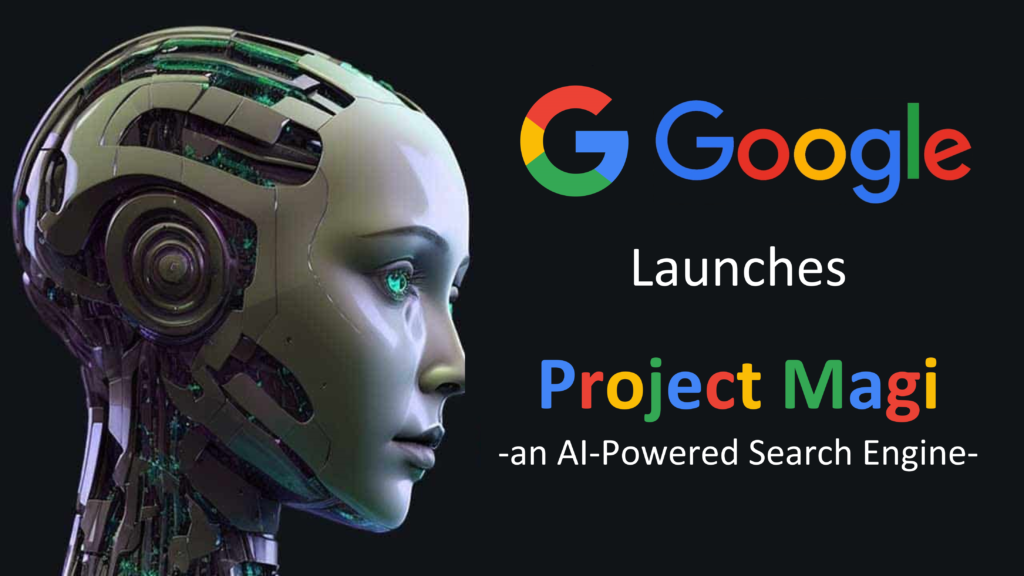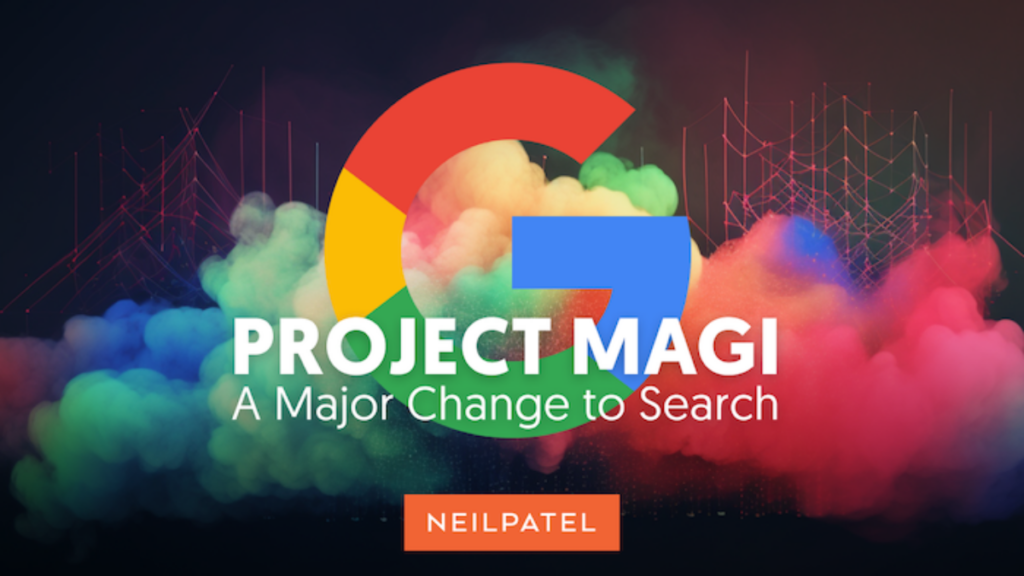
Project Magi: Google is changing how search works in a big way
Google is set to drop new AI features into Google Search next month as part of a development initiative known only as ‘Project Magi’. Strikingly, Google intends to release an entirely distinct new AI search engine at some point in the near-future.
Google has been serious about artificial intelligence for a number of years. The Google AI division was established in 2017, bringing together a number of new business acquisitions and existing teams. The company has made use of large language models (LLMs) to improve the accuracy of its search results, but it has refrained from fully embracing AI within Google Search — until now.
While there have been justifiable concerns over incorrect or biassed statements cropping up in results, the true reason for Google’s hesitancy is likely down to fears of what AI-based search could mean for ads revenue.
The buzz around ChatGPT’s has changed all that. Microsoft and OpenAI’s collaboration to bring AI to Bing represents an unprecedented challenge to Google’s longstanding search engine supremacy. Bing had long been considered a secondary search engine; it has gained a lot more attention since introducing impressive AI features.
Alphabet shares dipped in the last 48 hrs following reports that the South Korean electronics giant, Samsung, may be about to switch its default smartphone search engine from Google to Bing. A report in The New York Times suggests “panic” in the Google hallways. The stakes are high given that around $3 billion in annual revenue is on the line with the contract. A similar contract with Apple, worth $20 billion, is up for renewal later this year.
According to The New York Times, Google’s new AI-powered search tools will be released next month, as part of Google’s ongoing efforts to stay competitive against rivals.
“Google is racing to build an all-new search engine powered by the technology. It is also upgrading the existing one with A.I. features.”
While reports paint a picture of Google scrambling into action, the truth is that preparations for an AI search future have long been underway. Recent developments seem only to have forced Google’s hand early.

Project Magi
Google is working towards integrating new AI features into its search engine. Dubbed ‘Project Magi’, these tools will launch next month — at first in the US and only for one million users. As the development timeline for Magi is unclear, there is no specific release date announced yet. Once launched, Magi’s impact is likely to be huge.
The project reflects Google’s ambition to stay ahead in the search industry and compete with AI-driven rivals. To be clear, “Magi” seems to refer to a number of different features and tools currently in development (rather than some “Hey Magi!” bot). The name is believed to be inspired by the idea of magic, suggesting a transformative search engine. Further details are thin on the ground at this point.
What we do know is that Google will make use of natural language processing and generative AI in a similar way to Bard. The goal is to offer a more conversational search experience: the AI bot will interpret queries and come up with answers rather than web content — or potentially some combination of the two.
In principle, Project Magi will anticipate search needs based on search queries and offer clever suggestions for related topics, helping users to find what they are looking for quickly and efficiently. According to the New York Times, at least 160 engineers are currently at work on the project: “Modernizing its search engine has become an obsession at Google, and the planned changes could put new A.I. technology in phones and homes all over the world.”
A ‘New’ Google Search Engine?
Further down the line, the stage is set for Google to release an entirely new and distinct search engine powered by its latest AI features. This ‘new’ Google search is in the early stages of development and with no confirmed release date. We can assume that, to an even greater degree, the proposed engine will learn and adapt to user behaviour over time, providing increasingly accurate and relevant responses.
The ‘new’ Google Search is likely bring together Google’s various AI features in a complete package. Google has for a while now been making use of other AI tools to improve a number of products and services, including mapping technology in Google Earth, music search through a conversational chatbot, image search using GIFI, language learning via Tivoli Tutor, and browsing assistance through Searchalong. Presumably, ads will still be present, but one wonders if there might be a switch to a cost-per-acquisition (CPA) model.
Nevertheless, there is no definite schedule for the release of the new standalone search engine from Google thus far.
One point to note is that, despite Microsoft’s efforts to attract more users to Edge, it has struggled to gain market share for Bing. While the prospect of sharing ad revenue is promising, the reality is that Bing still needs to rapidly grow its market share to compete with Google. A shift toward AI search is unlikely to happen overnight — it is likely a large section of internet users will forever prefer doing things the “old” (ie., search and SERP) way.
Key Takeaways for SEO and Digital Marketing
So, what are the main takeaways for marketers? As Google’s AI seeks more to generate answers rather than pull content from websites, digital marketing professionals may need to adjust their strategies. In the future, personalised search may require SEO experts to tailor content based on users’ preferences and needs. This increased personalisation may also necessitate more detailed user analysis to better understand users’ personal preferences. This means that the top search results for one user may not be the same for another.
AI search engines are likely to bring a paradigm shift in the way that marketers and SEOs approach search engine optimisation. With a focus on engagement and personalisation, the goal will be to create content that not only ranks well but also provides value to the user in the context of their specific search query.
The trend toward AI means content personalisation will be as critical as ever. User engagement and retention will become increasingly important for websites as AI-generated answers become more prevalent. Increased competition may require businesses to improve user experience, offer unique content or value propositions, and leverage other marketing channels to stay relevant. As a result, the focus of SEO may shift from website optimisation to AI collaboration.
There will likely be an increase in transactional competition as and when Google enables transactions directly on the new platform. This will force businesses and websites to become more competitive and find new ways to stand out in the crowded digital landscape.
As new search engines continue to leverage AI technology, marketers and SEOs will need to place a renewed emphasis on user engagement and retention. This is because AI-generated search results are likely to lead to a more conversational and personalised search experience for users, resulting in an increased expectation for relevant and satisfying results. As a result, metrics such as bounce rates, click-through rates, and time on site could become more crucial in measuring the effectiveness of AI-generated search results.
Traditional SEO practices may need to evolve to focus on optimising content for AI algorithms. This could mean placing a greater emphasis on natural language processing, structured data, and semantic search optimisation to ensure that content is understood and interpreted correctly by AI search engines.
The search industry is fluid and evolving. Significant changes are on the horizon for search ads, SEO, and other marketing strategies. In the coming months, we can expect to witness a transformation in the way businesses approach search, as new technologies and trends continue to emerge.